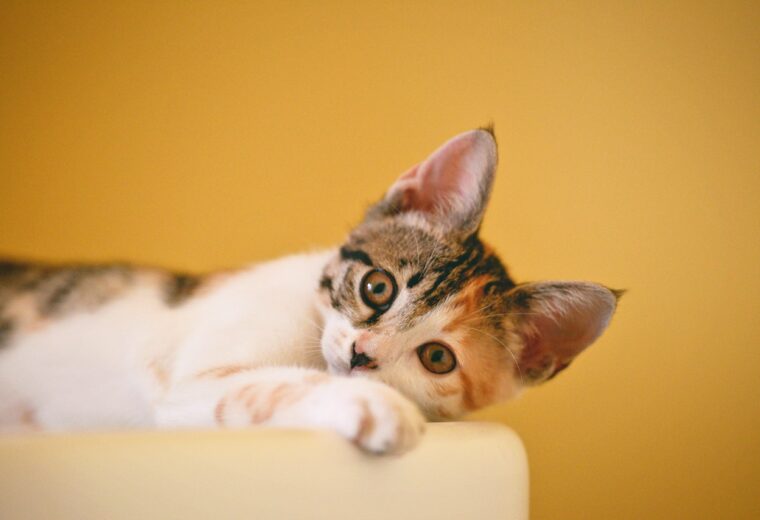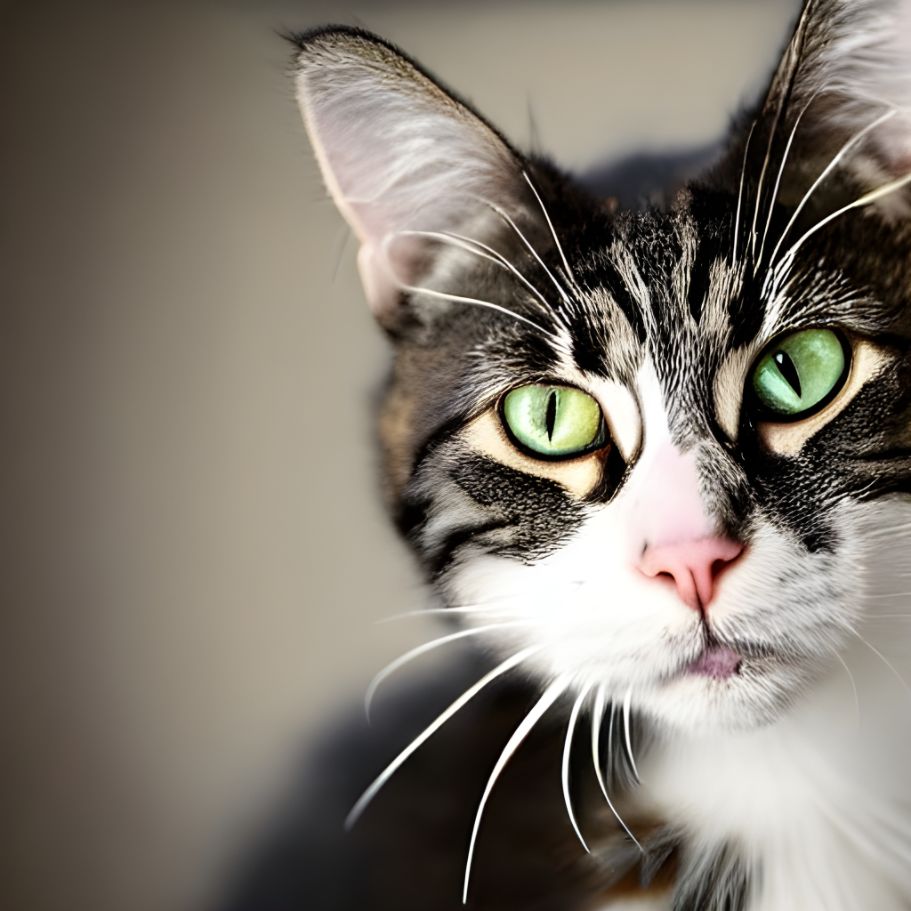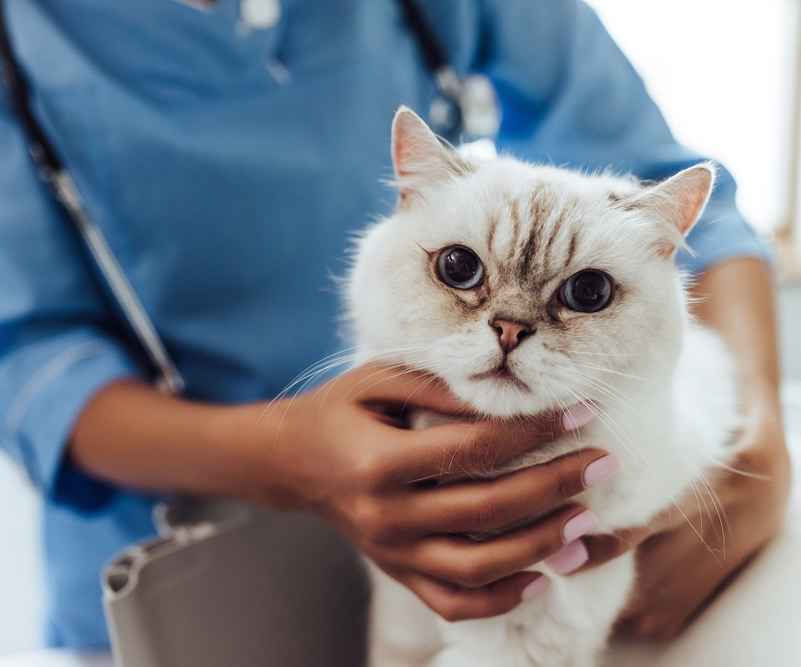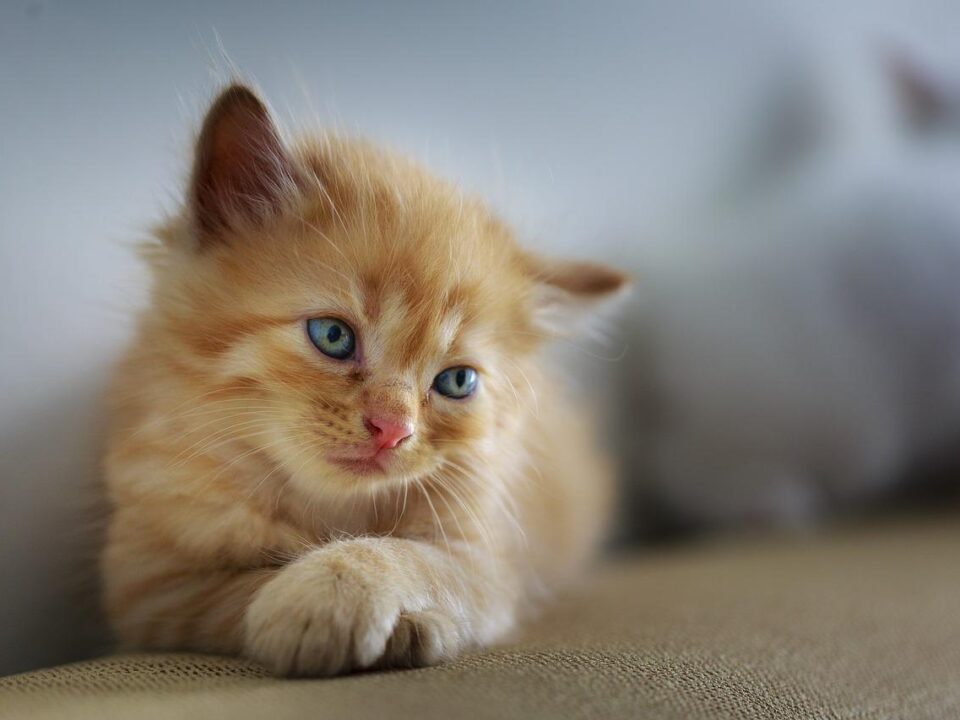
Everything you need to know about your dog and fleas
April 28, 2023
The Dos & Don’ts of Clipping Dog Nails
July 19, 2023Help! How do I get rid of fleas on my cat? – Indoor & Outdoor Cats

Whether your cat spends all its time indoors or a significant amount of time outside, fleas on your cat are bound to be a problem sometimes during their lives.
Not only are flea bites painful, but fleas carry diseases, can cause secondary infections and, left untreated, can take over your whole house.
So, let’s look at the best ways to get rid of fleas from your cat and how to prevent them.
Common signs to look for if you think your cat has fleas
Fleas are parasites that feed off of the blood of their hosts. A flea infestation can quickly spread from a cat to humans and throughout the home. Therefore, it’s essential to be aware of the signs of fleas so that you can act to get rid of them before they become a persistent problem.
Take action for fleas if you notice any of the following signs in your cat:
- Frequent scratching
- Black specks of flea faeces, called flea dirt, on fur or bedding
- Excessive grooming
- Hair loss due to skin irritation
- Red skin and secondary infections
- Lethargy and pale gums due to anaemia
Tips for picking the best cat flea treatment
An enormous number of parasite prevention products for cats are on the market, making selecting the most effective and safest one a difficult choice. Some products will treat fleas only, while other brands treat a range of parasites in one product.
If your cat currently has a flea problem, choose a product that will kill fleas quickly rather than one that simply interrupts the breeding cycle.
It is also important to remember that you should never give a cat flea treatment designed for dogs. The ingredients can be highly toxic to cats and, in some cases, fatal.
The product’s effectiveness, ease of application and safety are some things to consider when choosing the right product.
Use ‘all-in-one’ products to your advantage.
Your veterinarian will most likely recommend medication that treats several types of parasites at once, such as ticks, ear mites and worms. If your cat is mostly kept indoors, ticks are less likely to be a problem. You can easily find out if you are in a tick-prone area by calling your local vet.
Investigate topical vs oral flea treatments.
Topical flea prevention refers to anything applied externally, such as a spot-on treatment or sprays.
Oral medication includes things such as chewables or tablets. Getting your cat to take a tablet can be challenging, and most people find spot-on treatments the easiest way to treat cats for flea infestations.
Adult fleas can be washed off using flea shampoos designed for cats. However, as most cats dislike being washed, you may not find this the easiest method.
Recommendations: If your cat is a fussy eater, spot-on or pipetted topical medications might be the best solution for you.
Decide on the frequency of treatment – Monthly vs 3-monthly
Bravecto is one of the few flea treatments that can be administered every three months. Most other products on the market need to be given each month.
Flea collars, which claim to last many months, have been found to cause skin irritation and lethargy in some cats, and it’s possible your outside cat could lose it. Therefore, a topical or oral treatment applied at regular intervals is usually a better option.
Recommendations: Revolution Plus and Bravecto Plus are the closest to an all-in-one product on the market, protecting your cat from fleas, intestinal worms, paralysis ticks, mites and heartworms. However, neither of these products will protect pets against tapeworm, which is spread by fleas and acquired by cats when they swallow fleas infected by tapeworm larvae.
Consider your cat’s age.
If you have a kitten, check the label to ensure the product is suitable. Most flea treatments for young felines can be used from 8 weeks of age.
If your animal is older, look for a flea treatment with a rapid onset action that also helps to kill reinfestations. These products also prevent the development of flea eggs, larvae and pupae for several weeks after treatment.
Explore natural remedies for treating fleas on cats.
Essential oils can be toxic to cats. And they don’t have to be taken internally or applied to the skin to be dangerous to your animal. Even inhaling essential oils can cause your cat to become very sick. For this reason, the only ‘natural’ remedy you should use to remove fleas on your cat is a flea comb and gentle soap or giving your cat a bath with a natural, fragrance-free soap – if your cat will allow it.
To use a flea comb to remove adult fleas and eggs, half-fill a bucket with soapy water. Begin at your cat’s head, carefully combing its ears and throat and rinsing the flea comb in the bucket as you go. Move onto your pet’s stomach and groin before finishing with its tail and legs. Be sure to tip the bucket down the drain when you’re done.
However, neither of these methods is likely to get rid of fleas in your home, which is essential to prevent the problem from persisting.
How to prevent fleas on outdoor and indoor cats

Even if your cat never goes outside, fleas can still be tracked into the house from a flea-infested environment on your shoes or clothing and become a problem.
Vacuum regularly
Regular vacuuming of carpets, rugs and furniture will help to remove flea eggs and break their life cycle. But be sure to empty your vacuum bag into the bin or spray with surface spray to kill adult fleas—also, vacuum cracks and crevices between floorboards and skirting boards to remove adult bugs and eggs.
Wash everything
Wash bedding regularly – yours and your animal’s. Flea eggs can fall off onto surfaces such as upholstery or fabrics, so thoroughly cleaning your house regularly will interrupt the flea life cycle and help eliminate them for good. If your flea problem persists, you may need to call a professional exterminator.
Consider natural pest control.
You can also use apple cider vinegar diluted in a spray bottle on their bedding. It will not kill fleas but may deter them.
When to seek veterinary care for feline fleas
A flea infestation can make your cat miserable. So if your attempts to get rid of fleas on your cat aren’t successful, a trip to the vet for further advice and treatment is advisable.
The friendly professionals at Rossmore Veterinary Hospital can help treat your cat for problems that can arise from a flea infestation, such as flea allergy dermatitis. They can also give you advice on how to prevent fleas and the best treatments that will help you to avoid those that can be toxic to your pet.
For more advice on flea control, drop into the practice at Rossmore, southwest of Sydney, or call (02) 9606 6984 to book an appointment.



